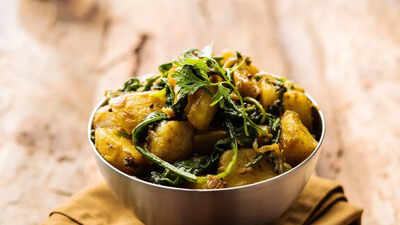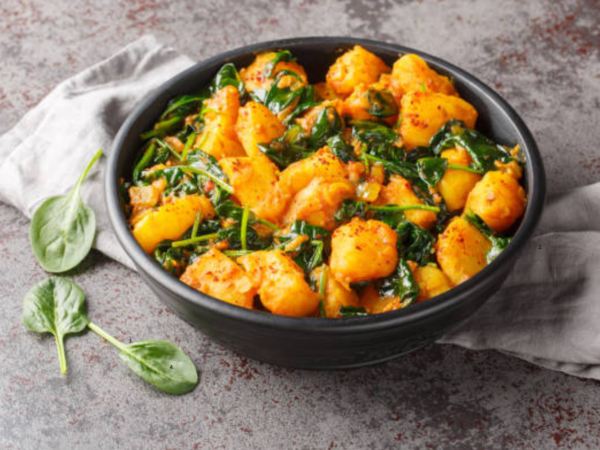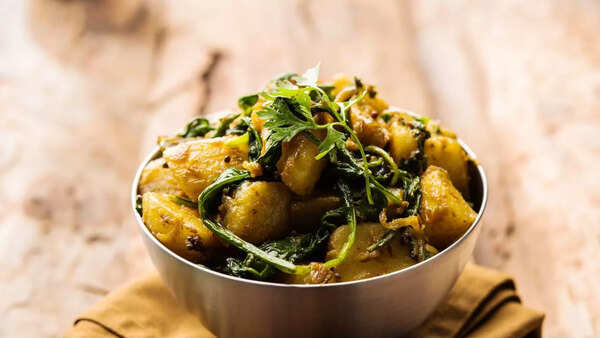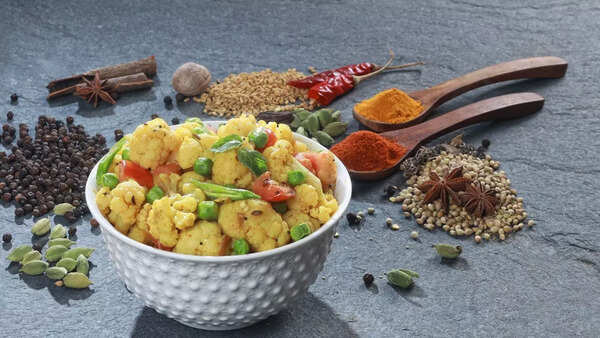ARTICLE AD BOX

Explore diabetes-friendly Indian cuisine with these six easy-to-make sabzis. Incorporating vegetables like karela, methi, and lauki into your diet can naturally help stabilize blood sugar levels. These traditional recipes are rich in fiber, antioxidants, and low glycemic index ingredients, making them a delicious and effective way to manage diabetes.
Struggling with fluctuating sugar levels? Then we have got your back with some healthy yet basic traditional delicacies that are made with some simple veggies, herbs and healthy spices that make these sabzis super healthy and delicious.
But there are certain traditional delicacies that are no less than a remedy for metabolism and digestive health that can be made in the kitchen every day.Managing blood sugar levels doesn't always require exotic superfoods sometimes, the best remedies are in your everyday kitchen. Indian cuisine is rich in seasonal vegetables and traditional sabzis that not only taste great but also support blood sugar control. With a smart mix of fiber, antioxidants, and low glycemic index ingredients, certain desi sabzis can help stabilize blood sugar naturally.
Here are six easy-to-make, diabetes-friendly Indian sabzis that deserve a spot on your plate.

Cold potatoes might sound strange but hear this. Once cooled, they carry more resistant starch than when hot. This helps manage blood sugar levels and supports good gut bacteria. A cold aloo chaat with lemon and jeera powder is both tasty and smart.
Bitter Gourd (Karela) SabziKarela is perhaps the most recommended vegetable for diabetics in Ayurveda and modern nutrition. Its active compound, charantin, is known to have blood sugar-lowering properties. Regular consumption of stir-fried or stuffed karela helps increase insulin sensitivity. Cook it with minimal oil and avoid over-frying to retain its medicinal properties.
Pairing it with onions, garlic, or tomatoes helps balance its bitterness and boosts gut health.

Fenugreek Leaves (Methi) SabziFresh methi leaves are packed with soluble fiber, which slows down sugar absorption into the bloodstream. Methi sabzi, whether made dry or with tomatoes and spices, is highly effective in regulating post-meal sugar spikes. Fenugreek also supports insulin activity and reduces insulin resistance over time.
It is best to consume methi in small portions regularly to get the maximum benefit.Bottle Gourd (Lauki) CurryLauki is over 90% water and has a very low glycemic load, making it ideal for diabetic diets. Whether prepared as a dry sabzi, lauki chana dal, or in a light curry, this vegetable is easy to digest and helps in managing blood sugar while also supporting weight loss. Lauki also cools the body and improves hydration—an added bonus for those managing lifestyle-related health concerns like diabetes and hypertension.

Ridge Gourd (Turai) BhajiTurai is an underrated vegetable that is light, fibrous, and low in calories. It supports liver health, improves digestion, and helps maintain stable sugar levels due to its low carbohydrate content. A simple turai sabzi tempered with cumin and mustard seeds can be a comforting addition to your lunch or dinner. Its mild flavor makes it suitable for pairing with whole grains like roti or brown rice.Cabbage and Peas Stir-FryCabbage is high in antioxidants and fiber while being low in carbohydrates, making it excellent for blood sugar control. When combined with green peas, which add a touch of natural sweetness and protein, the result is a nutritious sabzi that is both satisfying and sugar-friendly. Cook this combination lightly with turmeric, ginger, and green chilies to enhance its anti-inflammatory benefits.Drumstick (Moringa) SabziDrumsticks or saijan ki phalli are not only rich in iron and vitamin C but also help reduce blood glucose levels. Moringa leaves and pods are known to lower fasting blood sugar and improve overall metabolic health. You can cook drumstick with moong dal or make a light, coconut-based South Indian-style curry to enjoy its full potential. It’s especially beneficial when consumed at lunch or dinner during the sugar-sensitive hours of the day.



.png)
.png)
.png)
















 7 hours ago
4
7 hours ago
4









 English (US) ·
English (US) ·